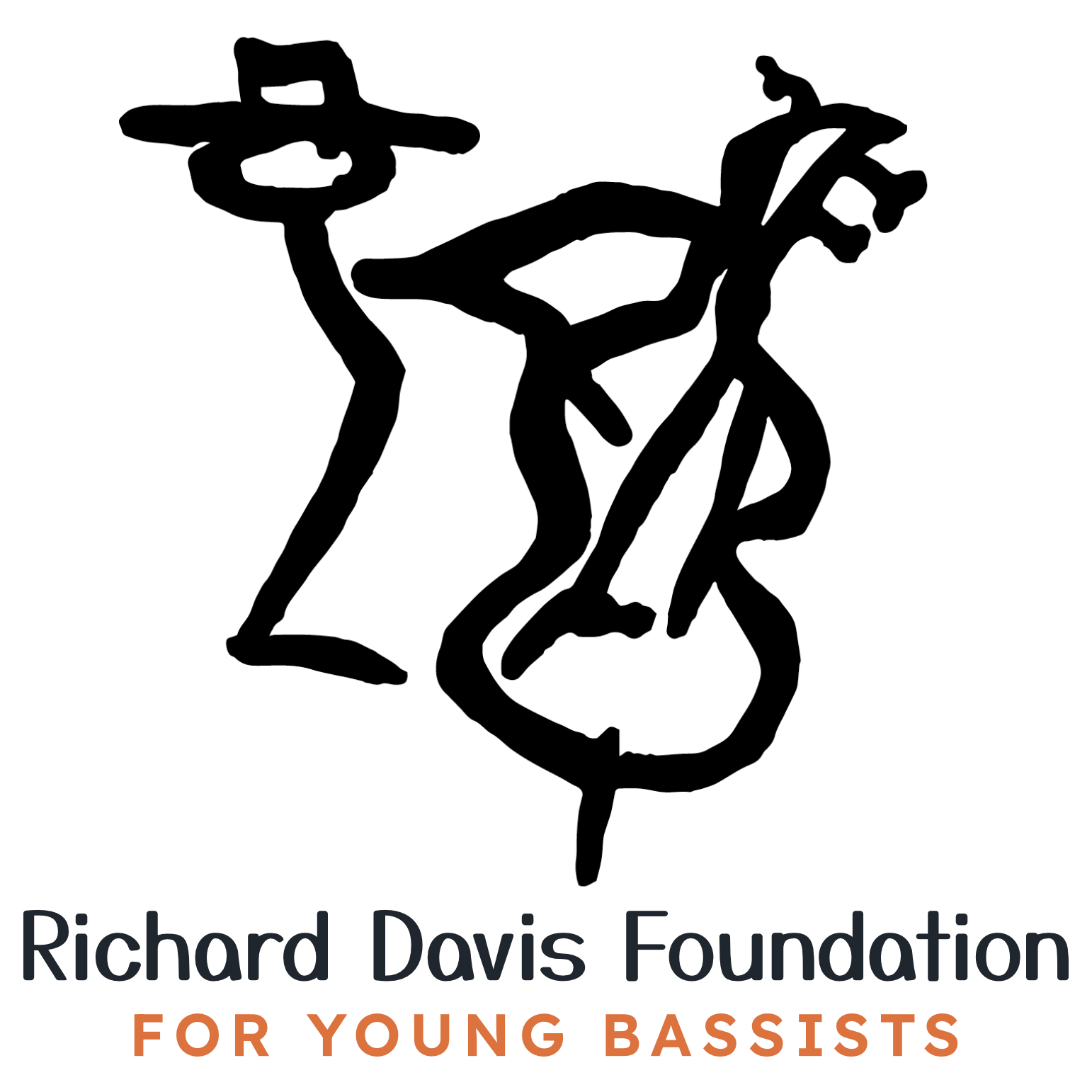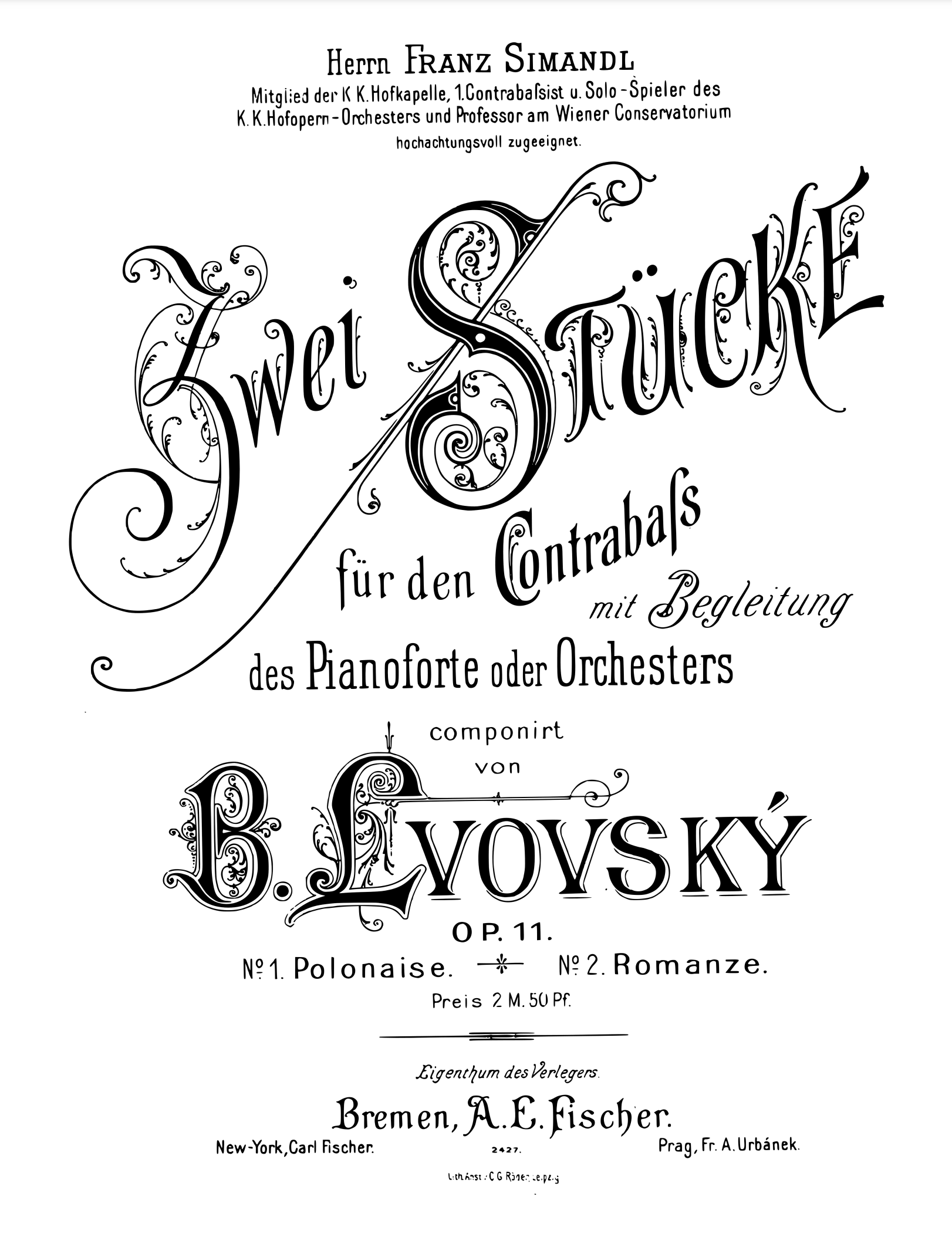Unfortunately, not many bassists have heard of the composer and bassist Bretislav Lvovsky, or played his works. Thanks to RDYB Clinician Ben Ferris’s recent re-publication (and performances) of Lvovsky’s “Zwei Stücke” (Two Pieces) for Double Bass and Piano, and research into the dark history behind why this piece fell out of publication, this doesn’t have to be the case anymore though. This piece, and its historical situation (including composer and publisher bios) are now available for Young Bassists everywhere to download and learn.
Young bassists who did not already pick up a physical copy at the conference can now download the full score, parts, and explanatory research.
About Zwei Stücke and the Composer

First, a little bit about Lvovsky! Also known as Emil Pick, Bretislav Lvovsky (1857-1910) was a Czech bassist and composer active in Vienna around the turn of the 20th century. He composed many pieces, including at least four operas, concertos and pieces for various instruments. In addition to his musical compositions, he was also a writer for a music, theater, and literature review magazine in his time. Perhaps most interesting to young bassists – he was a student of famous bass pedagogue, Franz Simandl at the Vienna Conservatory! There he actually helped Simandl compile the now infamous “New Method for Double Bass” which many of you will be familiar with! In fact, the Two Pieces actually include a dedication from Mr. Lvovsky to Mr. Franz Simandl himself on the cover of the manuscript.
Of the Zwei Stücke, Piece No.1, is “Polonaise” (fast and flashy) and Piece No. 2 is “Romanze” (more gentle and sweet). These would be great pieces for young bassists, and could even be used for state WSMA Solo & Ensemble as Class A Solos. They were originally published in Solo Tuning, but have been transposed to orchestra tuning to facilitate accessibility.
Re-publication Project
This re-publication project began with an almost ancient seeming manuscript that Professor Richard Davis passed on to his student, Ben Ferris upon his retirement. Richard had gotten his book from his teacher, Rudolf Fahsbender (Chicago Symphony Orchestra), many years ago. The beautiful cover, and mystery of the composer, having never heard any bassists play this piece or any others by Lvovsky, Ben started looking into the history of Zwei Stücke & their composer.
History & Reason for Obscurity?
Guided by Professor Teryl Dobbs as part of University of Wisconsin Music class, MUSIC 497 – Special Topics: Music and Genocide, Ben discovered that Lvovsky’s pieces were likely not republished since circa 1900, due to the time period during World War II, known as the Holocaust, in which “the systemic, state-sponsored persecution and murder of six million European Jews by the Nazi German regime and its allies and collaborators” (source: ). The Nazis committed extensive theft of property, particularly of Jewish people. The piece’s publishing company A.E. Fischer is part of this story – one of the owners, Hermann Benjamin was forced to flee Germany in 1934 because of antisemitism as Hitler rose to power. His wife and children were eventually deported to Theresienstadt and murdered in the Treblinka extermination camp. Richard Schauer, another important person in the publishing company, was forced to sell the publishing house under Nazi racial laws in 1936. Before the sale could be arranged though, they were forced to sell the company during the Kristallnacht pogrom in 1938. The publishing house itself burned down completely in 1943 as Leipzig was bombed during the war. Majority of the original printing plates (including, likely the engravings of Lvovsky’s compositions) were destroyed at that time.
80 years later, harm perpetuated by the Nazi regime, allies, and collaborators is still not resolved. Return of property to Jewish families is still ongoing and making the headlines frequently. Although this piece is in public domain, if you feel compelled to contribute to reparations related to this cause, you can make a donation to HIAS, the Hebrew Immigrant Aid Society. IT was originally founded to help Jews fleeing from pogroms in Russia and Eastern Europe. Today, HIAS continues the work of assisting people seeking to leave oppressive situations – more information and make donations at: www.hias.org.
The re-published works getting passed out at the Richard Davis Foundation for Young Bassists annual conference in April 2023.


